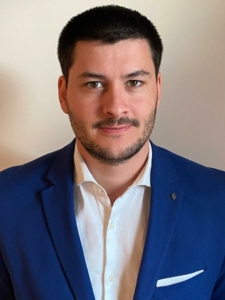 Léo Saint-Martin
Léo Saint-Martin is partner at DECISION Etudes & Conseil. Léo joined DECISION in 2016 to manage a team of economists and bring his expertise in market research and economic analysis in the fields of electronics components and systems.
Léo is the project manager of the economic analysis of the semiconductor industry within the ICOS project (International Cooperation On Semiconductors) since 2023 on behalf of DECISION.
Léo is also the project manager of the ECSA project (Microelectronics Training, Industry and Skills) and of the European Chips Skills Academy project since 2019 on behalf of DECISION. DECISION is in charge of the skills monitoring and of the quantification of the European talent gap within these projects which will run until 2027.
Léo has also been the manager and the main redactor of studies made by DECISION for the European Commission, French government bodies, industry associations and industrials on topics related to the semiconductor value-chain, the electronics value-chain and end-user industries (automotive, defense & security, industrial & robotics, cloud computing…).
Before joining DECISION Etudes & Conseil, Léo has conducted a number of theoretical and empirical research projects in economics and statistics focusing on local and international development issues.
Léo holds a master’s degree in economics from Paris-Dauphine University, a bachelor’s degree in economics and law from Paris Ouest Nanterre-La Défense University and an advanced certificate in corporate finance from HEC Paris.
![]()